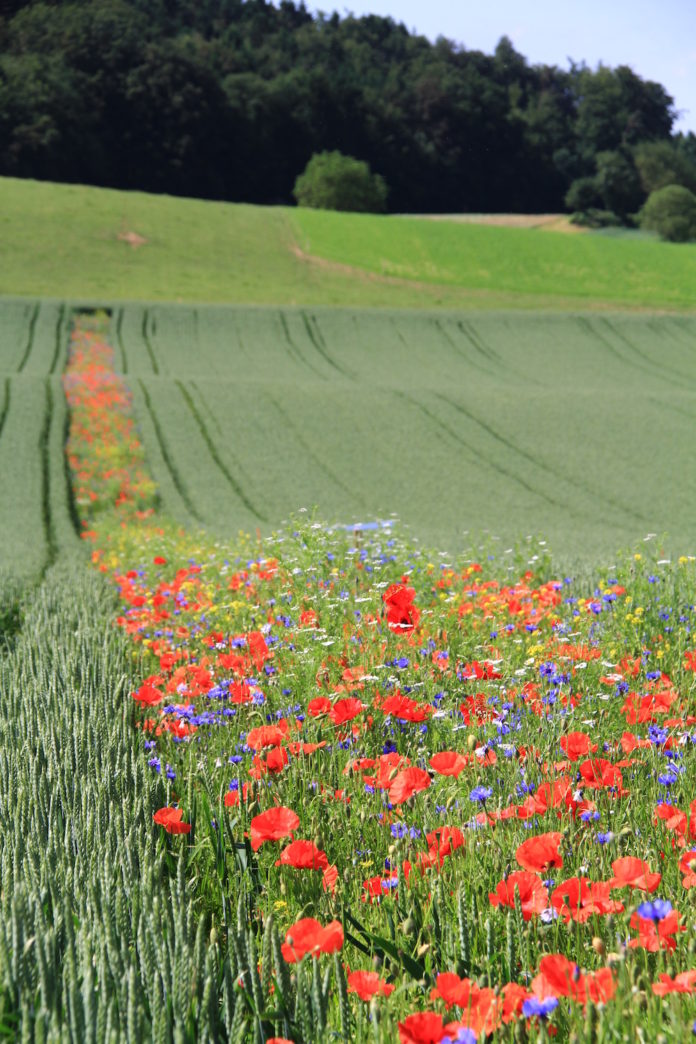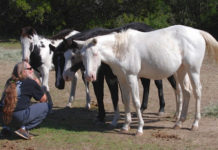Tailored strips of wildflowers allow pest-eating insects to spread throughout crop fields, reducing the need for pesticides. We meet the team behind the trial that puts flower power at the fore
From swaying red poppies to electric blue cornflowers, these wildflowers snaking through a field in Switzerland are no picturesque accident. They form one of 100 strips planted through crop fields there in a bid to boost the natural predators of pests and so reduce the need for pesticides.
Tailored flower strips allow pest-eating insects to travel throughout crop fields, rather than being limited to the perimeter. In a similar project under way in England, flowers such as oxeye daisy, red clover, common knapweed and wild carrot have been planted on 15 large arable farms in central and eastern parts of the country. The strips will be monitored for five years as part of a trial – the first of its kind in the UK – run by the Centre for Ecology and Hydrology (CEH).
Be informed. Be inspired.
Achieving Sustainable Agricultural Systems is a five-year, £11m UK government research investment that brings together scientists and ‘industry innovators’ to work on ways to make farming more efficient, sustainable and resilient to future shocks. Using wildflower margins to support insects such as ground beetles, parasitic wasps and hoverflies has been shown to reduce pest…










